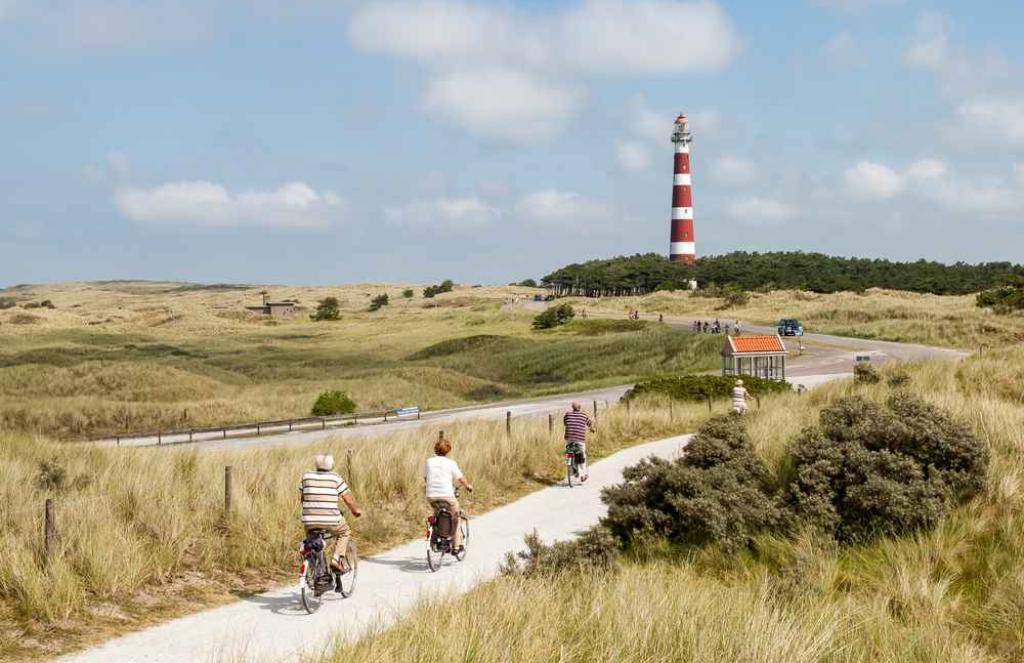Thessaloniki gets ready for its metro launch in November
The underground rapid transit lines have been under construction for almost two decades due to various project delays
 TheMayor.EU logo
TheMayor.EU logo 
Ameland is a tranquil spot that will also serve as a test site for tide-generated electricity, Source: Depositphotos
Ameland will get electricity generated from a technology called ‘tidal kite’
The small Dutch island of Ameland, located in the Wadden Sea will be the site of the first electricity generated by the power of sea tides in the country. The project, which seeks to test a new technology called TidalKite will add a new dimension to the concept of renewable energy sources.
Dutch green electricity generation is dominated by wind farms and some solar as well. However, this new project seeks to utilize the power of the sea and the predictability of its tides.
Electricity can be generated by using the energy from the ebb and flow of the tides in the Wadden Sea. For this purpose, the company SeaQurrent has developed its “tidal kite”, which spins figures of eight on a cable connected to a generator on the seabed. The produced electricity then gets transported through cables on the land.
The scheme fits in with Ameland’s plans to become CO2 neutral by 2035, 15 years ahead of the rest of the country. Many of the island’s inhabitants already have shares in the local solar park on the island. Wind farms are not an option because the turbines would spoil the island’s natural beauty, the local authorities have said.
Then there’s the question of the environmental impact of the underwater kite, and more specifically that on marine wildlife. According to biologists, in order to accommodate the new technology other unsustainable activities, such as gas exploitation and fishing would have to cease.
There’s also the business side of things. The installation of such tidal kites would be more expensive than the installation of wind turbines and solar panels. On the other hand, though, tides are a regular and predictable natural force, which makes them more suitable for exploitation, unlike sunshine and wind.
If the pilot project is deemed suitable it will then be scaled up, with the usage of larger kites.

The underground rapid transit lines have been under construction for almost two decades due to various project delays

Now you can get your wine in Talence by paying directly in Bitcoin

That’s because the state has to spend money on updating the railway infrastructure rather than subsidizing the cost of the popular pass

Rethinking renewable energy sources for the urban landscape

The examples, compiled by Beyond Fossil Fuels, can inform and inspire communities and entrepreneurs that still feel trepidation at the prospect of energy transition

Now you can get your wine in Talence by paying directly in Bitcoin

The 10th European Conference on Sustainable Cities and Towns (ESCT) sets the stage for stronger cooperation between the EU, national and local level to fast track Europe's transition to climate neutrality.

At least, that’s the promise made by the mayor of Paris, Anne Hidalgo

The underground rapid transit lines have been under construction for almost two decades due to various project delays

At least, that’s the promise made by the mayor of Paris, Anne Hidalgo

Hostal de Pinós is located in the geographical centre of the autonomous region

Despite its church-y name, the district has long been known as the hangout spot for the artsy crowds

Urban dwellers across the EU are having a say in making their surroundings friendlier to people and the environment.

Forests in the EU can help green the European construction industry and bolster a continent-wide push for architectural improvements.

Apply by 10 November and do your part for the transformation of European public spaces

An interview with the Mayor of a Polish city that seeks to reinvent itself

An interview with the newly elected ICLEI President and Mayor of Malmö

A conversation with the Mayor of Lisbon about the spirit and dimensions of innovation present in the Portuguese capital














